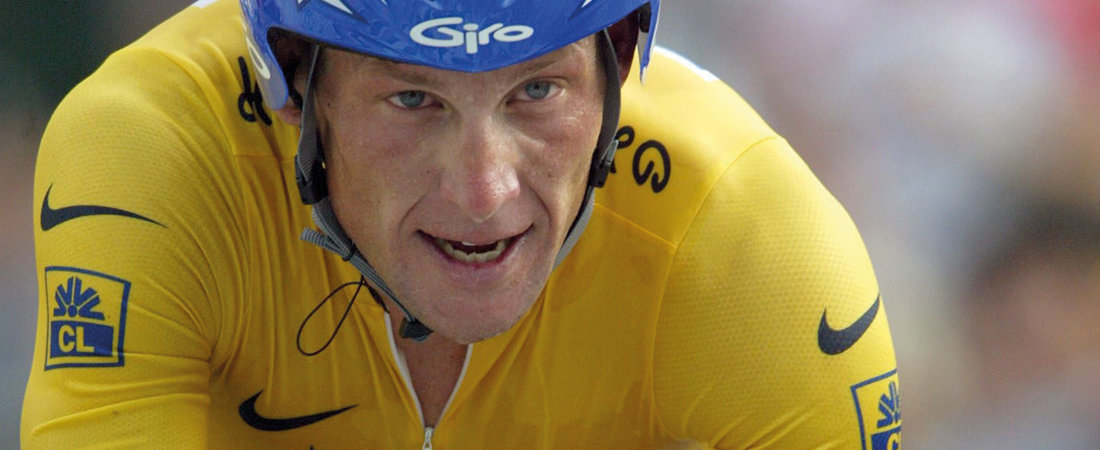Alastair is interviewed in the latest Portland Podcast on the importance of reputation management in sport by James Helm, Partner and former BBC Sports correspondent.
If you’re reading this, you no doubt share my passion, nay obsession, with a variety of sports.
It is not just a question of the physical, psychological pleasure of sitting, as I did recently, in warm sunshine as the Davids of Ireland took on the English Goliaths of cricket (relatively speaking) at Lords.
It is also because of what we can learn from sport and the parallels you can see in other walks of life, such as business, or politics, and how these can read across one from the other.
When I wrote a book about winning a couple of years ago, called Winners And How They Succeed, part of the motivation was to set down on paper the principles and the systems that we had used in New Labour that helped turn a losing organisation into a winning one, with three successive general election victories. Feels a long time ago now. But I also wanted to talk to winners in sport and business to explore the parallels and also the differences.
By the end of the process, I came to the conclusion – a rather sad one for someone who despite it all continues to see democratic politics as the best way to make big change for the better – that the best of sport does winning best, the best of business is runner-up, and politics trails in with a bronze. It’s also been interesting that since publication, I have had more approaches from different sports organisations, including three Premier League football clubs and a Super League rugby team, to discuss how they might apply some of the lessons of the book to different parts of their operations.
I was lucky in the kind of people I was able to talk to, especially in sport. Ferguson and Mourinho in football; Warne, Akram, Lara, Tendulkar in cricket; Woodward, Warburton and O’Driscoll in rugby; Bolt, Coe and Gebrselassie in athletics, sailor Ben Ainslie, boxer Floyd Mayweather … oh, and Lance Armstrong.
Armstrong is perhaps the most dramatic example in world sport of a fall from grace. In his pomp, winning his seven Tours de France, one of the great sporting icons on the planet, his cancer survivor story taking him from the sports pages to the TV documentary slots and the big bucks with sponsors and advertisers. He was, as I found when I first met him shortly before he won his fifth Tour, compelling, convincing, inspiring. I fell totally for the Armstrong legend. Since then, well, you all know the story.
He reminds us of two fundamental rules of modern communication and reputational management. The greater the scrutiny, the more you’d better be sure you’re the real deal. You can fool some of the people some of the time, and all that… The second rule, the higher you rise, the harder you fall.
Reputations are hard won, easily lost, and reputational currency is of much greater value than the financial kind. Armstrong’s sporting success and back story filled his reputational bank, but bit by bit as the truth came out, the currency reserves ran low. His disgrace has cast a long and painful shadow over the entire sport. Athletics, which has had more than its fair share of cheating stories, and given Russia’s state-sponsored doping programme with a geopolitical element thrown into the mix, similarly struggles. Step forward Seb Coe, reputational currency reserves still high despite a fair few batterings along a remarkable career in sport, politics, business, and now the politics of sport, and able therefore to give leadership and direction, essential to any organisation in the spotlight in a high profile sector.
Big sporting bodies, big brands like top football clubs, or top athletes, now generate as much profile as Presidents and Prime Ministers. I just googled Cristiano Ronaldo – 65million results in 0.74 seconds. Theresa May 29million. It is not just the enormous media profile attached to sport, but politicians take an interest, supporters demand to know ever more, and are unafraid of protesting if they are unhappy. This all adds pressure that was not there in the same way in the sporting arena prior to the media age becoming a reality.
Yet though the best of sport beats business and politics when it comes to things like teamship, mindset, resilience, in general terms it’s sport that takes the bronze when it comes to understanding the importance of reputational management, and developing the systems needed to ensure those reputational currencies are kept in credit. Case study Sepp Blatter.
Proper strategic planning on the communications side, whatever the boxing trash talkers or football manager mind gamers may think, will never have anything more than a marginal impact on the outcome of a sporting contest. But it can have a big impact on the way a sporting body, a club, a brand, an individual, are seen; its reputation, built over time. That is particularly important in the tough times, the losing times, the unexpected scandal times. And in the modern world, there are not many with any kind of profile who don’t have to endure some, or all of those along the way.

